 by our College Data Analytics Team
by our College Data Analytics TeamWalla Walla U total enrollment is approximately 1,737 students. 1,397 are undergraduates and 157 are graduate students.
Male/Female Breakdown of Undergraduates
The full-time Walla Walla U undergraduate population is made up of 48% women, and 52% men.
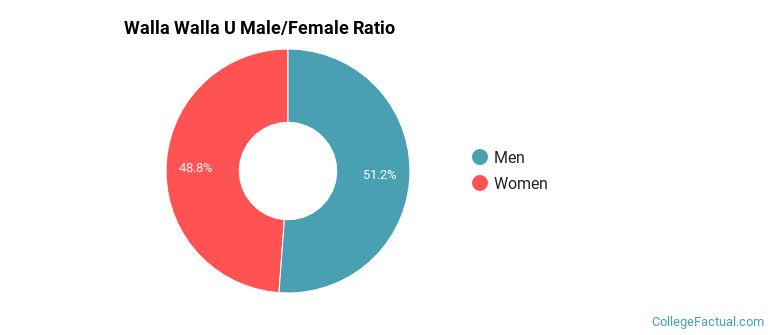
For the gender breakdown for all students, go here.
Walla Walla U Racial/Ethnic Breakdown of Undergraduates

| Race/Ethnicity | Number |
|---|---|
| White | 797 |
| Hispanic | 278 |
| Multi-Ethnic | 138 |
| Asian | 79 |
| International | 54 |
| Black or African American | 32 |
| Unknown | 11 |
| Native Hawaiian or Pacific Islander | 5 |
See racial/ethnic breakdown for all students.
Male/Female Breakdown of Graduate Students
About 83% of full-time grad students are women, and 17% men.

For the gender breakdown for all students, go here.
Walla Walla U Racial-Ethnic Breakdown of Graduate Students
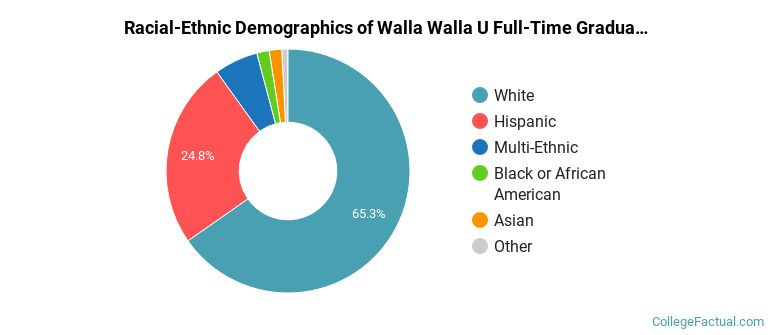
| Race/Ethnicity | Number |
|---|---|
| White | 108 |
| Hispanic | 31 |
| Multi-Ethnic | 6 |
| Asian | 3 |
| International | 3 |
| Black or African American | 1 |
| Native Hawaiian or Pacific Islander | 0 |
| Unknown | 0 |
See racial/ethnic breakdown for all students.
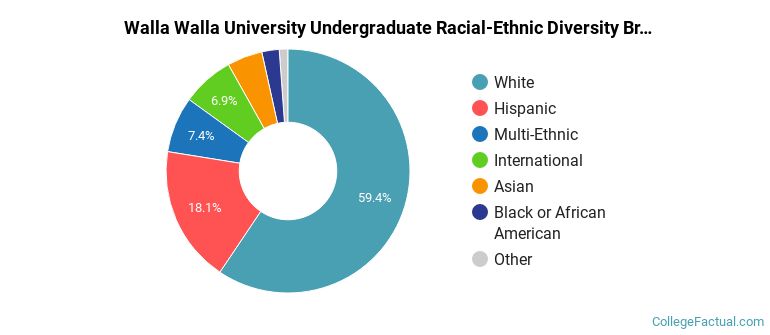
| Race/Ethnicity | Number |
|---|---|
| White | 981 |
| Hispanic | 328 |
| Multi-Ethnic | 153 |
| International | 103 |
| Asian | 95 |
| Black or African American | 39 |
| Unknown | 25 |
| Native Hawaiian or Pacific Islander | 5 |
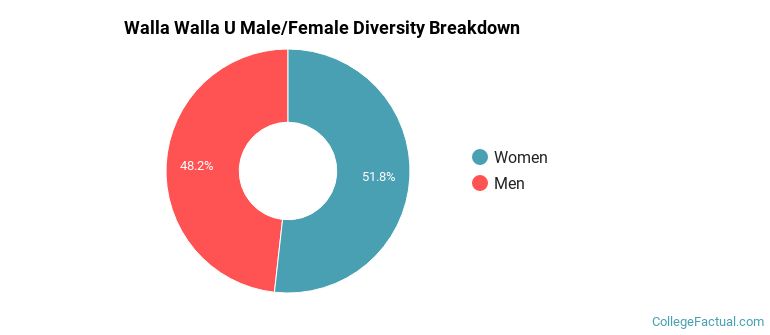
There are approximately 915 female students and 822 male students at Walla Walla U.
Walla Walla U ranks 238 out of 2,183 when it comes to geographic diversity.
69.06% of Walla Walla U students come from out of state, and 2.33% come from out of the country.
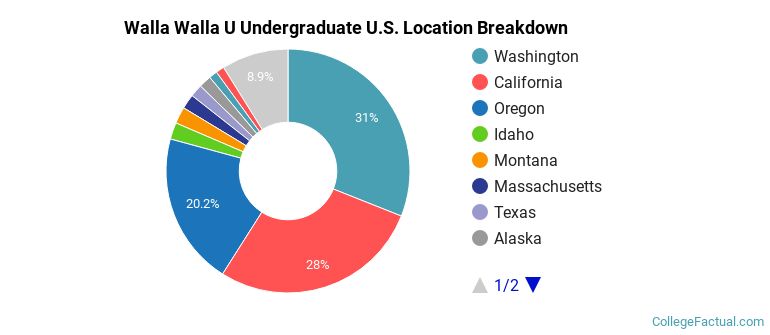
The undergraduate student body is split among 30 states (may include Washington D.C.). Click on the map for more detail.
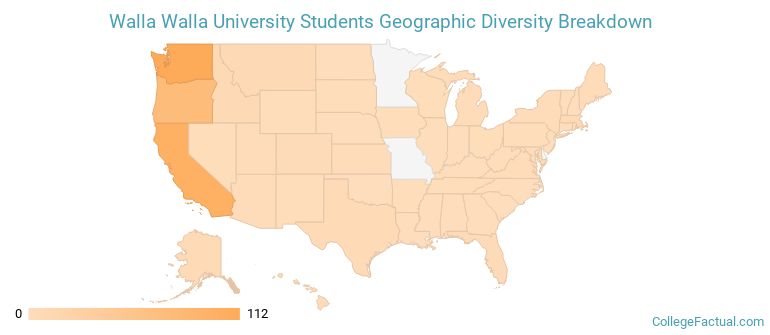
| State | Amount |
|---|---|
| Washington | 112 |
| California | 101 |
| Oregon | 73 |
| Idaho | 8 |
| Montana | 8 |
Students from 29 countries are represented at this school, with the majority of the international students coming from Canada, China, and Brazil.
Learn more about international students at Walla Walla U.
A traditional college student is defined as being between the ages of 18-21. At Walla Walla U, 59.73% of students fall into that category, compared to the national average of 60%.
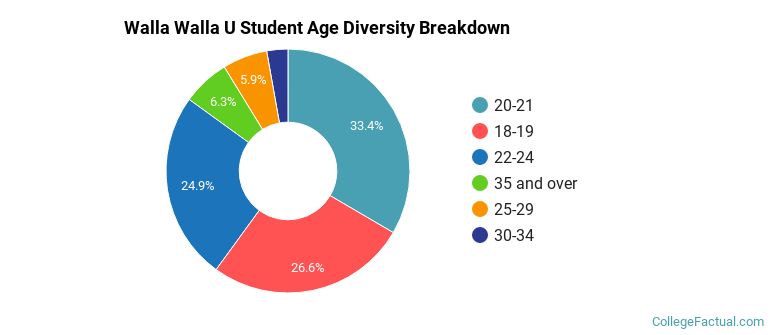
| Student Age Group | Amount |
|---|---|
| 20-21 | 607 |
| 18-19 | 483 |
| 22-24 | 453 |
| 35 and over | 114 |
| 25-29 | 108 |
| 30-34 | 51 |
| Under 18 | 0 |
Footnotes
*The racial-ethnic minorities count is calculated by taking the total number of students and subtracting white students, international students, and students whose race/ethnicity was unknown. This number is then divided by the total number of students at the school to obtain the racial-ethnic minorities percentage.
References
Department of Homeland Security Citizenship and Immigration Services
Image Credit: By Bryan Aulick under License
Read College Factual's Diversity Ranking Methodology.